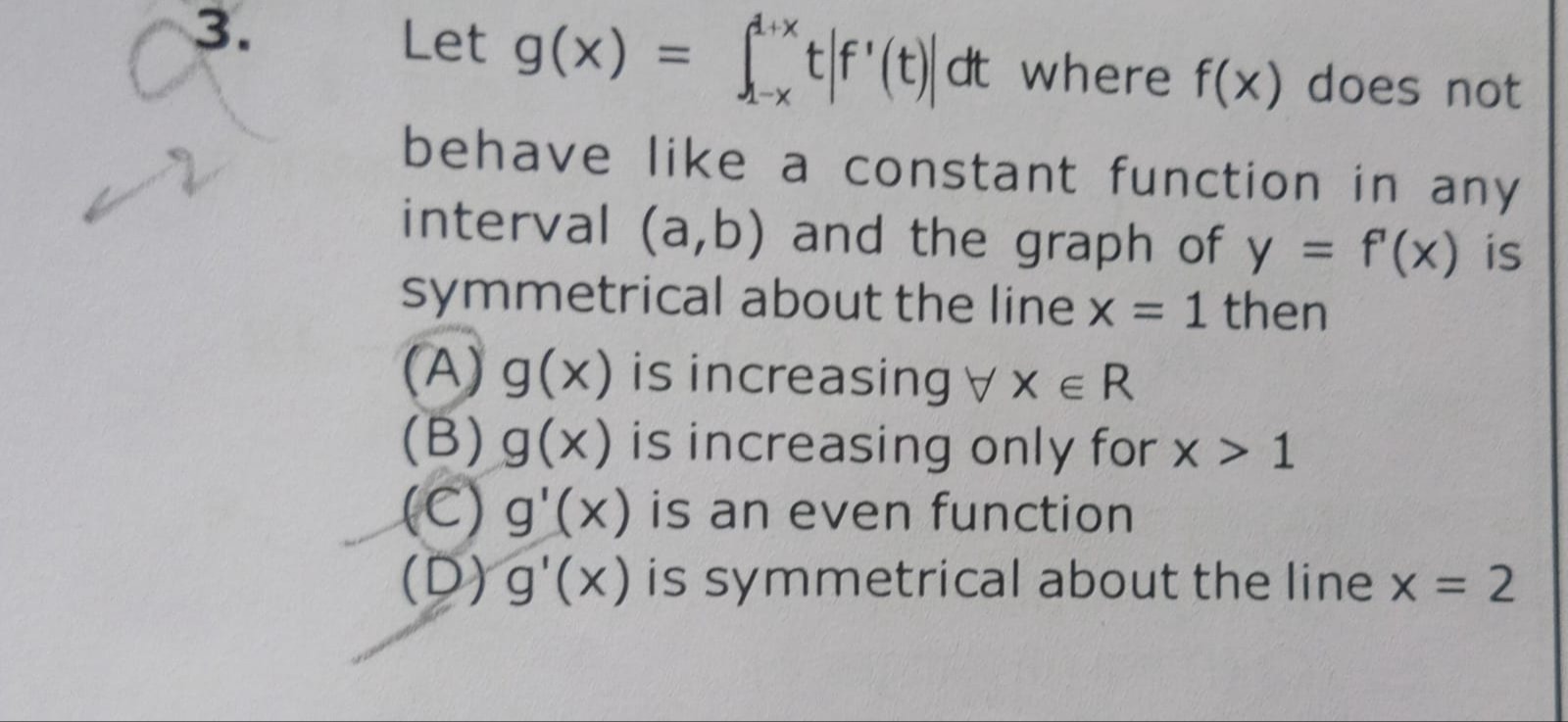Question
Question: Let \(g(x) = \displaystyle \int_{1-x}^{1+x} t\,\bigl|f'(t)\bigr|\,dt\) where \(f(x)\) does not behav...
Let g(x)=∫1−x1+xtf′(t)dt where f(x) does not behave like a constant function in any interval (a,b) and the graph of y=f′(x) is symmetrical about the line x=1. Then

A
g(x) is increasing ∀x∈R
B
g(x) is increasing only for x>1
C
g′(x) is an even function
D
g′(x) is symmetrical about the line x=2
Answer
g(x) is increasing ∀ x∈R; g′(x) is an even function
Explanation
Solution
Compute the derivative by Leibniz rule:
g′(x)=(1+x)f′(1+x)−(1−x)f′(1−x)(−1)=(1+x)f′(1+x)+(1−x)f′(1−x).Since f′(x) is symmetric about x=1, we have f′(1+x)=f′(1−x). Hence
g′(x)=f′(1+x)[(1+x)+(1−x)]=2f′(1+x)≥0.- Monotonicity: g′(x)≥0 for all real x, so g is increasing on R.
- Evenness:
so g′(x) is an even function.
